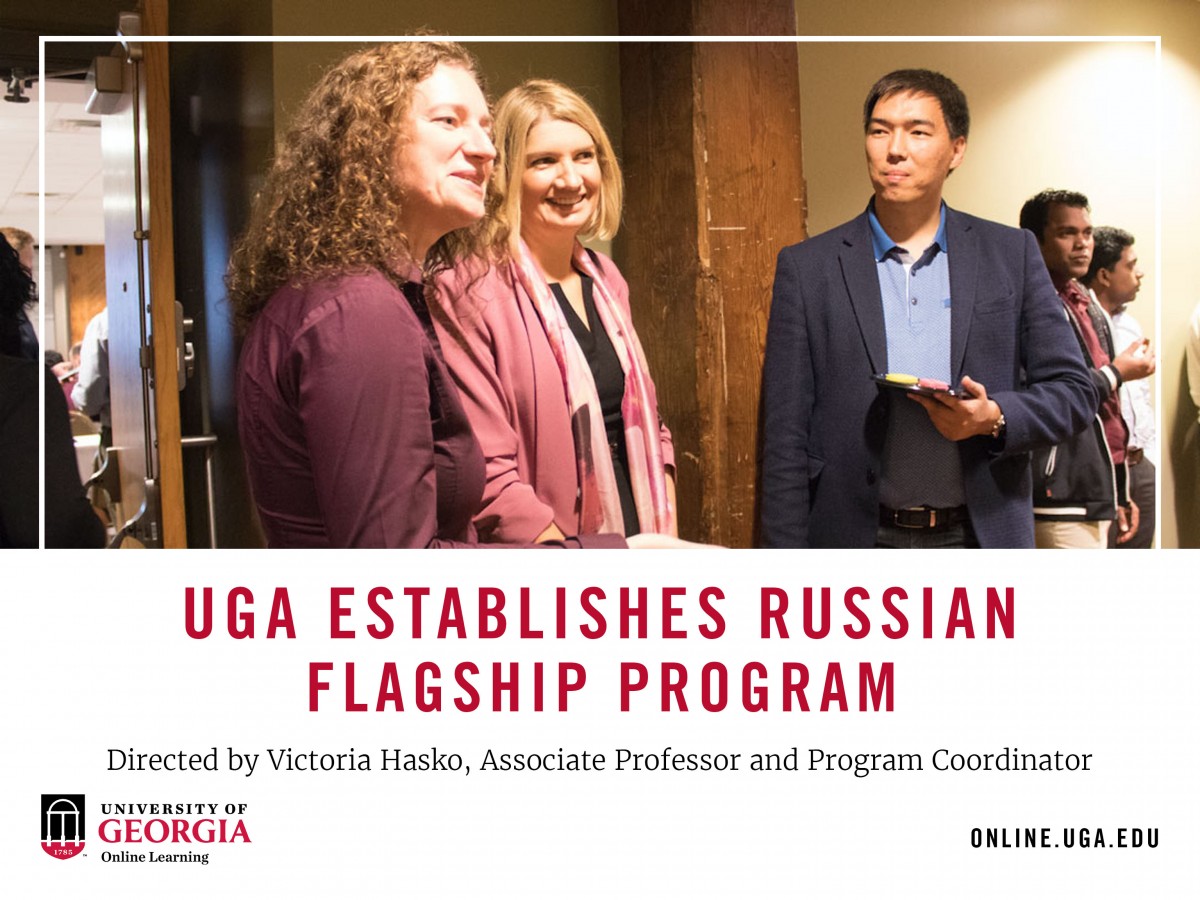UGA Establishes Russian Flagship Program
UGA Establishes Russian Flagship Program

The development of global partnerships and a growing Eastern European economy have created an expansion of job opportunities for professionals with Russian language skills in fields ranging from the biological and mathematical sciences to the social sciences and international affairs. As commercial opportunities continue to grow between the United States and Eastern Europe, an increased number of businesses and government agencies are hiring individuals with Russian language skills.
To meet this growing need, a grant from the U.S. Department of Defense’s National Security Education Program was recently awarded to the University of Georgia to establish the Russian Domestic Undergraduate Flagship Program. The renewable grant brings more than $275,000 to UGA in the first year and is expected to provide more than one million dollars, pending congressional approval, during the first full grant cycle.
The Language Flagship Programs are administered by the Institute of International Education, which oversees several elite grant programs, such as Fulbright. The Language Flagship currently funds 25 Flagship Centers across the country in languages considered vital to national security and to the challenges of a global society, such as environmental degradation, global disease and hunger and economic pressures.
The University of Georgia Russian flagship program is directed by Victoria Hasko, Associate Professor and Program Coordinator for the Department of Language and Literacy Education (TESOL and World Language Education).
“Flagship provides students with the resources to sustain and grow their proficiency in Russian throughout their undergraduate studies with generous funding for study abroad scholarships to help students strengthen their language and intercultural skills in professional terms,” said Hasko.
These experiences, including social events with faculty and special projects with native Russian language speakers, help students develop intercultural competency that link their intensive language studies with their academic interests and professional aspirations. Since Flagship certification is highly regarded by employers, graduates of this program often obtain high-profile positions in national security.
“Intercultural competency is a very important component of the program,” said Hasko. “One of the goals of the Language Flagship initiative is to prepare professionals who command deep knowledge of the country’s language, as well as their culture, customs, history and geopolitics, so they can serve as effective interlocutors both socially and professionally in their language of study.”
The first cohort of 20 students was admitted to the program this past August, and each student receives intensive instruction and tutoring at least five times a week. The program currently has over 40 students on various levels across campus pursuing majors in fields ranging from international affairs and chemistry to computer science and ecology.
Thanks to another program awarded to Hasko and sponsored by the Eurasia Foundation U.S.-Russia University Partnership, Russian Flagship students also have the opportunity to work with and maintain relationships with Russian students from Moscow and Khabarovsk, Russia, via Skype and WhatsApp. This partnership allows students from both countries to practice speaking Russian or English and receive intercultural information from first-language speakers.
The program is open to undergraduate students of all majors and is a collaborative initiative between the College of Education and the Franklin College of Arts and Sciences, with faculty partners across campus.
For more information about the Russian Flagship program, contact the program directors at RussianFlagship@uga.edu.
